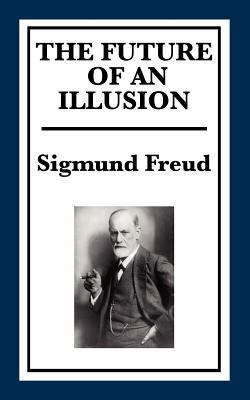All Formats & Editions
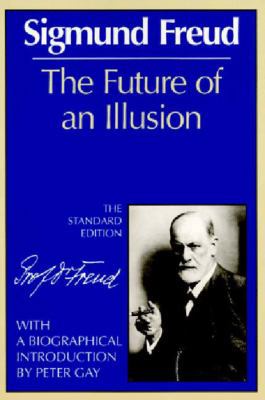
The Future of an Illusion
In the manner of the eighteenth-century philosophe, Freud argued that religion and science were mortal enemies. Early in the century, he began to think about religion psychoanalytically and to discuss it in his writings. ?The Future of an Illusion ?(1927), Freud's best known...
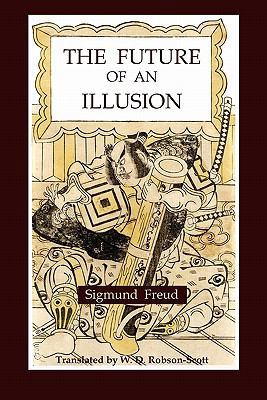
The Future of an Illusion
Reprint of the 1928 edition. The Future of an Illusion is a book written by Sigmund Freud in 1927. It describes his interpretation of religion's origins, development, psychoanalysis, and its future. Freud describes religion as an illusion, as one of the wishes that are the "fulfillments...
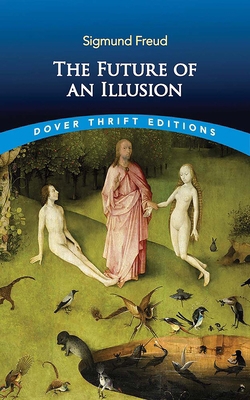
The Future of an Illusion
In The Future of an Illusion, Freud's psychoanalysis of religion is the culmination of a lifelong thought pattern. Freud examines human nature and the role of religion in society, proclaiming that human instincts are destructive to civilization and must be restrained to...
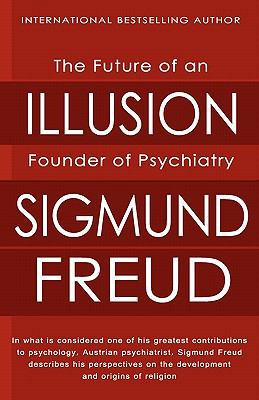
The Future of an Illusion
In what is considered one of his greatest contributions to psychology, Austrian psychiatrist, Sigmund Freud describes his perspectives on the development and origins of religion?-religion as an illusion, wishes that are the "fulfillments of the oldest, strongest, and most urgent...
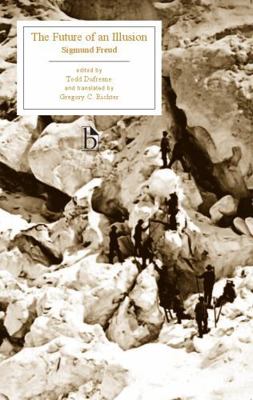
The Future of an Illusion
Sigmund Freud, the founder of psychoanalysis, declared that religion is a universal obsessional neurosis in his famous work of 1927, The Future of an Illusion. This work provoked immediate controversy and has continued to be an important reference for anyone interested in the...
![The Future of an Illusion [French] B0007DV2HU Book Cover](https://m.media-amazon.com/images/I/515apIHhk7L._SL500_.jpg)
The Future of an Illusion [French]
![El porvenir de una ilusión [Spanish] 1539888622 Book Cover](https://i.thriftbooks.com/api/imagehandler/l/185A2601432EE27643C04657FFBD2FAAFDB636E5.jpeg)
El porvenir de una ilusión [Spanish]
En qu consiste el singular valor de las ideas religiosas? Cu l es la significaci n psicol gica de las representaciones religiosas ? Con estas preguntas, Freud nos ofrece un an lisis cr tico de la relaci n entre la religi n y la cultura.

The Future of an Illusion
In the manner of the eighteenth-century philosopher, Freud argued that religion and science were mortal enemies. Early in the century, he began to think about religion psychoanalytically and to discuss it in his writings. The Future of an Illusion (1927), Freud's best known and...
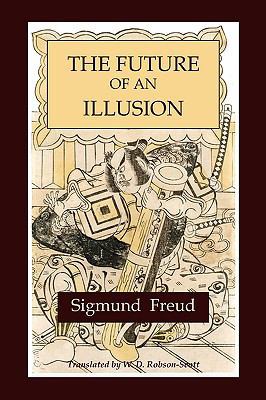
The Future of an Illusion
Reprint of the 1928 edition. The Future of an Illusion is a book written by Sigmund Freud in 1927. It describes his interpretation of religion's origins, development, psychoanalysis, and its future. Freud describes religion as an illusion, as one of the wishes that are the "fulfillments...
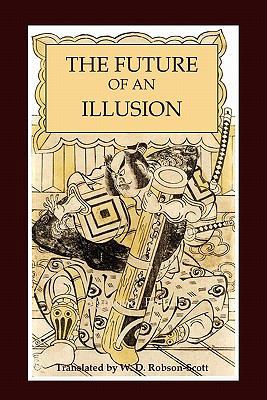
The Future of an Illusion
![Die Zukunft einer Illusion [German] 1542456150 Book Cover](https://i.thriftbooks.com/api/imagehandler/l/E22CB78F1D9933E1B27CE5409AC91AD7B38F7037.jpeg)
Die Zukunft einer Illusion [German]
Die Zukunft einer Illusion ist eine 1927 erschienene Schrift von Sigmund Freud. Sie gilt als sein Hauptwerk ber die Religion, als zeitgen ssisches soziales Ph nomen betrachtet. Grundlage der Religion ist f r Freud die menschliche Hilflosigkeit. Eine infantile Reaktion hierauf...
![El porvenir de una ilusión (Spanish Edition) [Spanish] 1729254330 Book Cover](https://m.media-amazon.com/images/I/41ey+W5tZuL._SL500_.jpg)
El porvenir de una ilusión (Spanish Edition) [Spanish]

Great Ideas the Future of an Illusion (Penguin ...

The Future of an Illusion (Anchor Books)
![El Porvenir de Una Ilusion [Spanish] 1546631607 Book Cover](https://i.thriftbooks.com/api/imagehandler/l/ADA1EED79CB739077EF3871D50A037EF281ADE4D.jpeg)
El Porvenir de Una Ilusion [Spanish]
El porvenir de una ilusi n (Die Zukunft einer Illusion) es un libro escrito en 1927 por Sigmund Freud. En l describe su interpretaci n sobre los or genes, desarrollo y psicoan lisis de la religi n as como su futuro. Freud ve a la religi n como un falso sistema de creencias...

The Future of an Illusion (International Psycho...
![Die Zukunft einer Illusion [German] B08L2L8TZQ Book Cover](https://i.thriftbooks.com/api/imagehandler/l/63C303FB097DA3A419215B55AD8DBF30A0CED566.jpeg)
Die Zukunft einer Illusion [German]
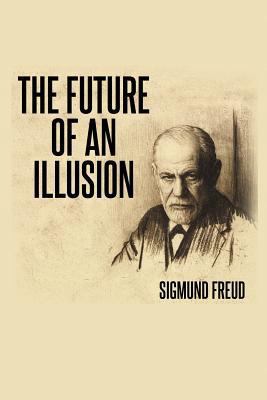
The Future of an Illusion
In the manner of the eighteenth-century philosophe, Freud argued that religion and science were mortal enemies. Early in the century, he began to think about religion psychoanalytically and to discuss it in his writings. The Future of an Illusion, Freud's best known and most...
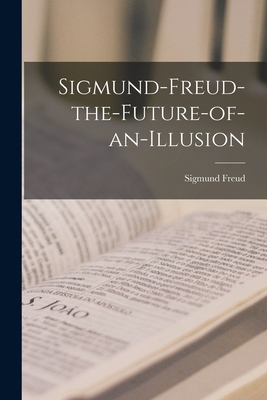
Sigmund-freud-the-future-of-an-illusion
![Die Zukunft einer Illusion [German] B08L47S3NH Book Cover](https://i.thriftbooks.com/api/imagehandler/l/CC3FBA2FC280D7ECF9AD9B24E7707391516B3CEC.jpeg)
Die Zukunft einer Illusion [German]
![El porvenir de una ilusion [Spanish] 1974622479 Book Cover](https://i.thriftbooks.com/api/imagehandler/l/327F0DEF893C30AA72CD2BAF87C917E4829D6558.jpeg)
El porvenir de una ilusion [Spanish]
Freud no est lejos de hacer suyas las palabras de Marx: "La religi n es el opio de los pueblos". Es l cito, dice, "igualar el efecto de los consuelos religiosos a los de un narc tico". Las religiones alimentan una ilusi n: todo lo que est bien terminar bien, todo lo que est...
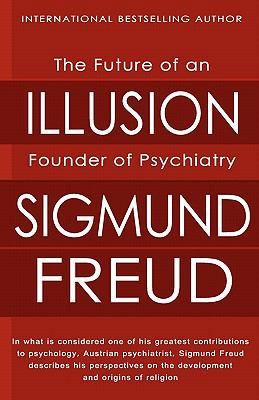
The Future of an Illusion
In what is considered one of his greatest contributions to psychology, Austrian psychiatrist, Sigmund Freud describes his perspectives on the development and origins of religion?-religion as an illusion, wishes that are the "fulfillments of the oldest, strongest, and most urgent...

The Future of an Illusion (International Psycho...
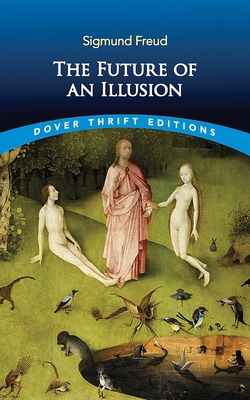
The Future of an Illusion
In The Future of an Illusion, Freud's psychoanalysis of religion is the culmination of a lifelong thought pattern. Freud examines human nature and the role of religion in society, proclaiming that human instincts are destructive to civilization and must be restrained to...
